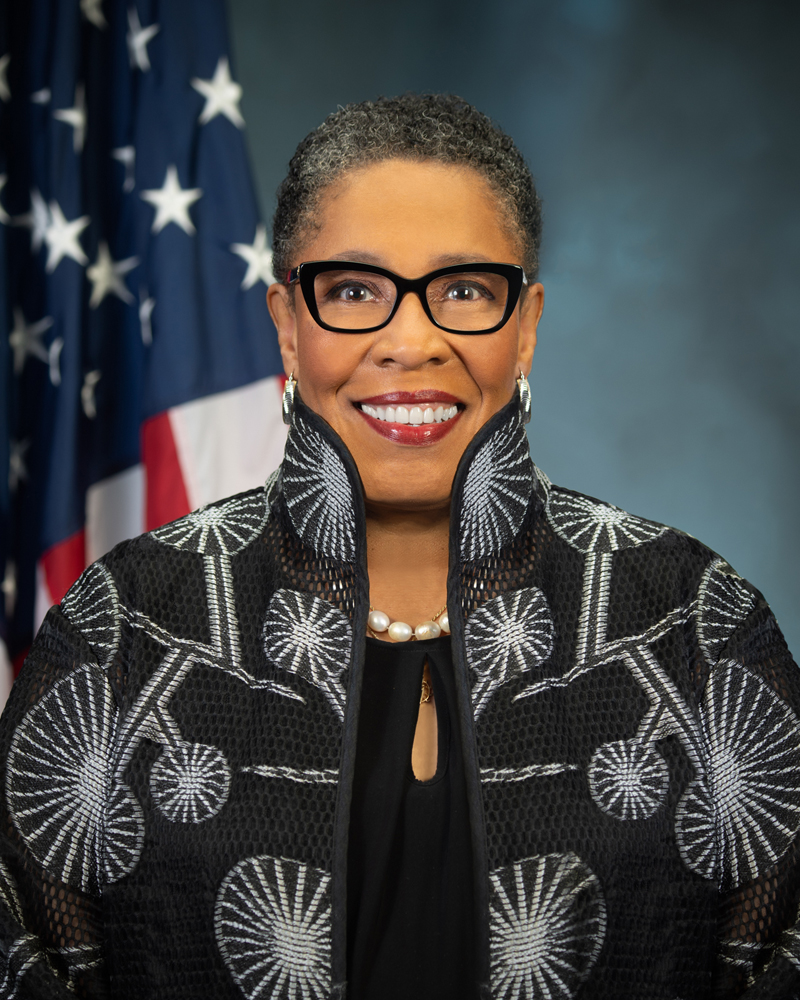Marcia Fudge is now the former secretary of the U.S. Department of Housing and Urban Development (HUD), having served her final day on Friday, March 22, after announcing her resignation just 11 days earlier. Adrianne Todman now serves as acting HUD secretary.
In a recently published interview with NPR, Fudge was asked why now is the time to step away from the job, particularly as President Joe Biden has made housing issues a centerpiece of the administration heading into what is likely to be a hotly contested presidential race in the fall.
“One [reason], of course, is I just want to go home,” Fudge told NPR. “I have been away from home for more than 20 years, and it’s just time to go. [I] have an aging mother [and] family that, really, I’d like to spend some more time with. So it just became time. I feel really, really good[…] about what we have been able to do.”

But Fudge’s resignation announcement also noted that she felt “mixed emotions” about leaving her post, which she said is mostly tied to the immense amount of work left to do in U.S. housing.
“Because there’s always more work to do,” she said when asked why she feels mixed emotions. “And so if there is any regret that I would have at all, it would just be that I just couldn’t do enough. But then, on the other hand, I know the environment in which I work, and I also know that not much is going to be done through this election cycle. And I just gave it everything I had.”
When asked for her assessment on housing affordability, Fudge said that the core issue is that there has not been enough investment in low- to-moderate income housing sources.
“Everybody wants a McMansion [and] two-acre lots,” she said. “We cannot build houses the way our parents and grandparents built them. And so we neglected to build anything that most average Americans can afford. And so we finally are now at a point where it is a crisis. The only way we get out of this […] is to build more affordable housing. And it’s not going to happen overnight. It’s going to take years.”
The U.S. is roughly 3 million units of affordable housing short of where it needs to be, Fudge said. That imbalance between supply and demand will serve to keep prices elevated. When asked about the different jurisdictions that intersect with housing — since city, county, state and federal governments all play a role — she said she believes there is more the federal government can do.
“I think that we’re going to have to start to do more public-private partnerships, which are some of the things that we’ve started doing, and that’s why we’ve been able to put more housing in the market,” she said. “We also need to go into communities like the ones I come from. I come from Cleveland, Ohio.
“We need to start to find ways to preserve core communities and not allow the kind of gentrification we’ve been seeing, not allow private companies to come in and just buy up swaths of land. We need to make sure that those properties remain affordable.”
Fudge was also asked about homelessness issues in various communities, and she responded by saying there needs to be more investment in “very low-income housing.”
“We’ve got to get away from shelters,” she said. “We have to get away from tent cities. We issued about $3 billion to communities across the country to assist them in dealing with unhoused people in their communities. Instead of shelters, they’re building tiny houses. Instead of congregate places, they’re building places that have common areas but have private rooms.
“We’re doing all of that kind of thing just to get people initially off the streets into an environment where they can start to heal. That really is the answer to homelessness, is housing.”
Fudge also said she hopes to continue advising the White House on housing issues on an informal basis as she returns to life as a private citizen.



